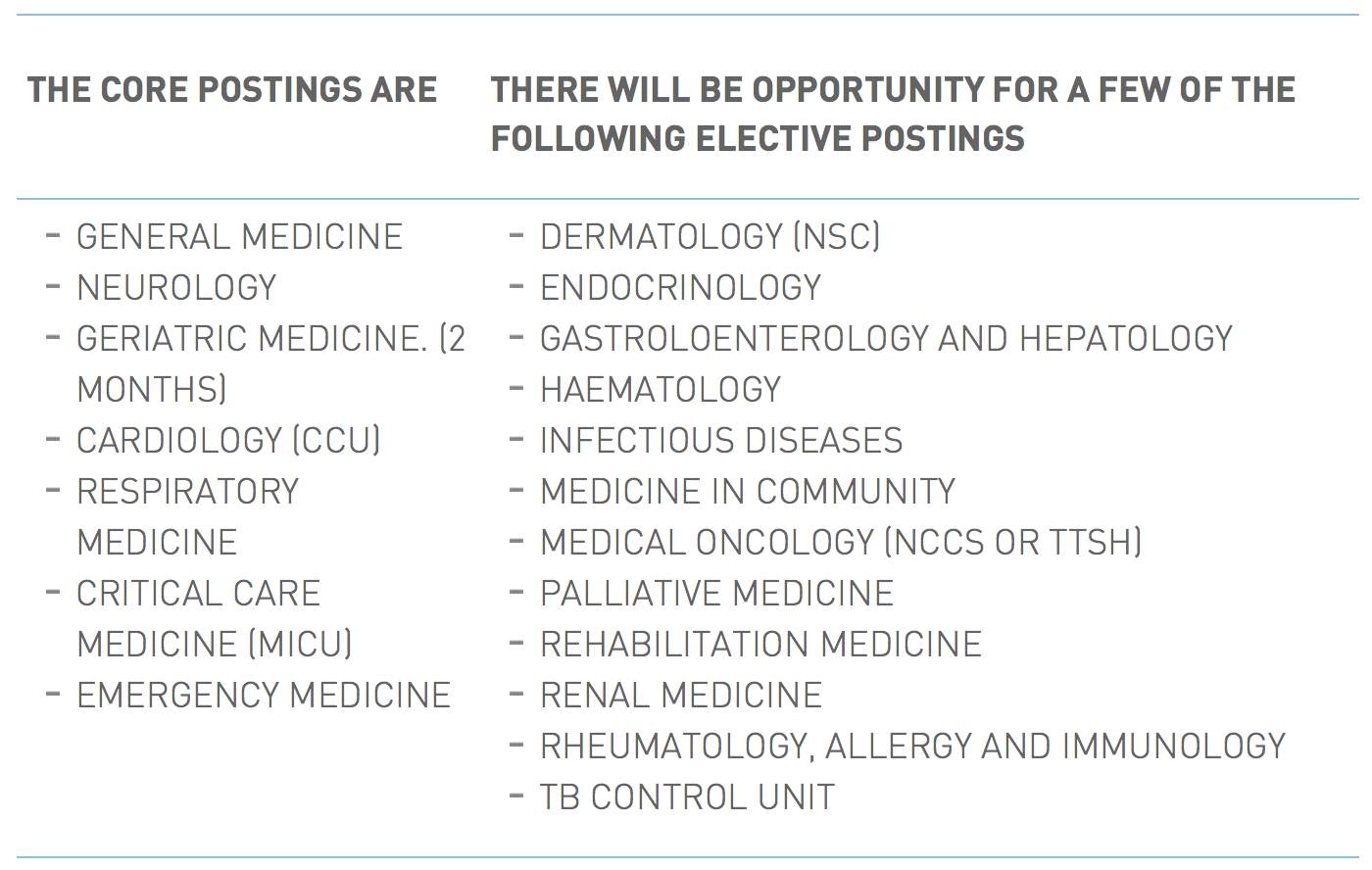Curriculum
The programme recognises that career and life goals vary among each resident, and we hope that the knowledge, skills and values the resident will acquire in his/her three years with us will stand each resident in good stead for his/her career ahead. We constantly gather feedback from residents and faculty to enhance our curriculum in order to keep up with medical advancements and the changing needs of society. Aside from structured teaching, each resident will receive guidance through his/her growth as a clinician with formative assessments and regular feedback from faculty. Our teaching does not only focus on clinical medicine but also provides the resident with a foundation in research, medical education, patient safety, and quality improvement. We also have dedicated teaching for both the PACES (Practical Assessment of Clinical Examination Skills) examination and the ITE (In-Training Examination).
Our hospitals have a strong tradition in general Internal Medicine and a wide range of medical specialties, offering an ideal environment for both patient care and learning. With the largest General Medicine department and the most established Geriatric Medicine, Infectious Diseases, Rheumatology, and Allergy and Immunology departments in Singapore within our teaching hospital, the resident has abundant opportunity to learn from a good case mix of patients. Our collaboration with the National Centres also gives the resident opportunities to learn and work under the specialists in Neurology, Dermatology, and Medical Oncology. Other than their clinical postings, the resident also get to learn through workshops on root cause analysis, patient safety, medical education and quality improvement with options to pursue further work in these fields.

Upon completing the NHG Internal Medicine Residency Programme, the resident is eligible to either:
- Continue with the senior residency programme in
Advanced Internal Medicine (AIM).
Those who have completed AIM programme may enter subspecialty training to be dually accredited.
- Or enter medical subspecialty training in the following:
• Cardiology
• Dermatology
• Endocrinology
• Gastroenterology
• Geriatric Medicine
• Haematology
• Infectious Diseases
• Medical Oncology
• Nuclear Medicine
• Neurology
•
Palliative Medicine
• Rehabilitation Medicine
• Renal Medicine
• Respiratory Medicine
• Rheumatology
Rotations
A typical rotation for a resident who joins the residency programme after completing housemanship is as follows:

*Cross-Cluster Rotation (CCR) is a requirement for all IM residents
Please note that the actual rotation block may differ from this.
Resident's Scholarly Activities
In order to prepare the resident for roles as clinician-administrators, clinician-researchers, or clinician-educators, he/she will be exposed to a range of courses from quality improvement, root cause analysis to evidence-based medicine and is encouraged to participate in peer-teaching and scholarly activities.